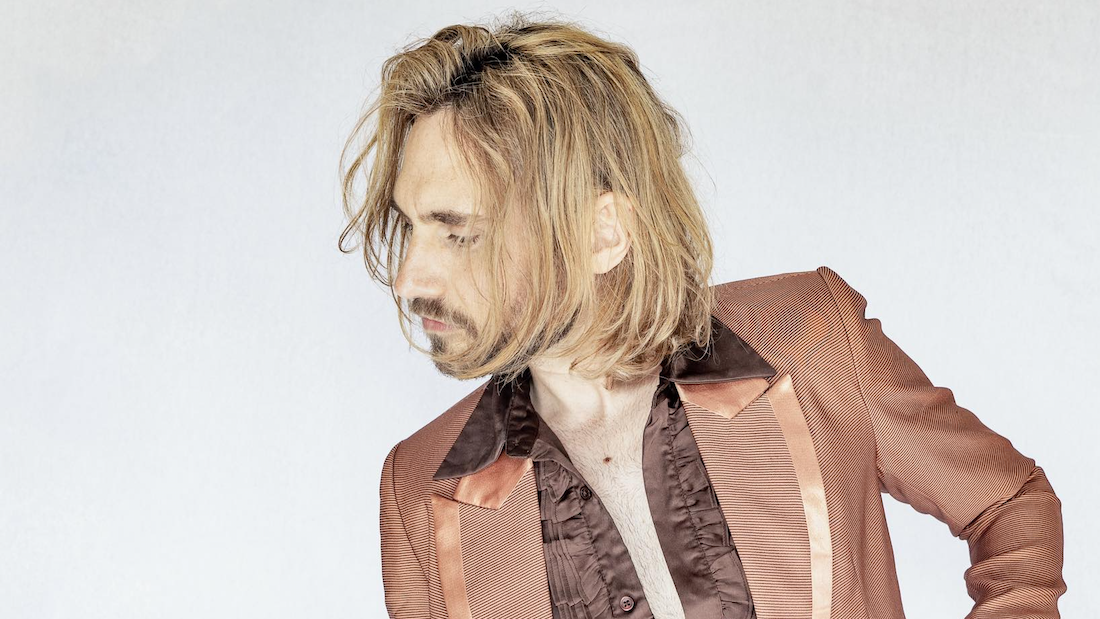
Contemplating Bowie with Justin Burford
Following on from his acclaimed Nirvana and The Doors shows, Justin Burford is set to celebrate the decade-spanning career of David Bowie when Justin Burford Sings David Bowie debuts at Lyric’s Underground this Saturday, November 25. BOB GORDON caught up with Burford to find out why performing Bowie’s material is both a challenging and rewarding experience for the life-long fan.
Alongside End of Fashion and your career as a singer/songwriter, you’ve done various shows about Jim Morrison and Kurt Cobain in the past, and now you’re doing Justin Burford Sings David Bowie. I’m going to ask the most obvious question — almost a dumb question, but it’s sort of valid. Why David Bowie?
Well, I don’t think there are any dumb questions. It’s a good question. I think among the catalogue of artists that were really influential on me — as an artist and a songwriter in my own right — the ones you touched on before Jim Morrison and Kurt Cobain, they sort of took over when I was in my teens. And when I was thinking of other artists that were big influences on me as a kid, what actually stretches back almost before solid memories started for me? I remember David Bowie just sort of being in the ether. He was just kind of one of those, I guess, ubiquitous artists, just always there and certainly on rotation in the Burford household in the suburban ‘80s.
I guess it kind of seemed like the logical choice, also sort of coming off the back of my previous show, which was Justin Burford Sings Nirvana Unplugged, and obviously the connection there being Nirvana famously covered a Bowie song in that unplugged concert, The Man Who Sold The World, clicked. I said, ‘Okay, I’m going to try it.’ It’s a big undertaking, but we’re doing it anyway.
The artists that you’ve evoked before, Jim Morrison and Kurt Cobain, famously died when they were 27, and then a mythology developed around them. David Bowie died at the age of 69, but he was somewhat mythical during his lifetime…
That’s a great point. Yeah, I guess that’s kind of what I was touching on before, like all throughout my childhood, and I think this can be certain for a lot of people; he was just this kind of Star Man. It just sort of felt like he was always there in the sky. I feel like, as an artist, through his songs and all the rest of it and through the way that he presented himself, he sort of transcended that typical kind of approachable, touchable human being.
I always felt that there was this strange kind of dichotomy between him feeling unattainable and super far away, yet also really, really close somehow. Like a friend of yours that’s really relatable. It’s just so bizarre and so different to Jim Morrison and Kurt Cobain, who kind of had this one very particular character, one sort of particular style that just sort of seemed to just represent a certain symbol, a certain moment in time. Whereas Bowie just felt so much more fluid and so much more complex, for want of a better word.
It makes me wonder how he would have gone if he was born in today’s market, where everything needs to be just very easily categorised for the algorithm; you’ve got to boil yourself down to the most simple and basic marketing keywords and hashtags, etc. I don’t know if that necessarily serves a complex artist like Bowie.
Speaking of complexity, the show is described as stripped-back with unique arrangements. To some people, ‘stripped back’ might indicate some kind of simplicity, but there’s nothing simple about it, is there?
Actually, it’s made it even more challenging. Going into these songs, I think I was almost naive. ‘Bowie? No problem!’ (laughs). But as we started rehearsing, it’s like, ‘wow, these songs!’ It’s very much case-by-case. I mean, some of the songs are already so harmoniously rich, especially the early material sort around the Hunky Dory era, even into Ziggy Stardust and ‘70s era Bowie. It has been a little bit easier, being able to sort of translate that into a sort of more stripped-back context, more boiled down, I guess, because there’s interesting chord changes and the music itself is quite bombastic and dynamic. So it’s sort of baked into the music.
But I’ve noticed as we’ve gone through, you know, I’m presenting the show in chronological order, but I’m sort of skipping the really kooky early stuff, which maybe I shouldn’t, but I do want to please the crowd. I don’t want to give too much away, but the first song is Space Oddity, which I felt was appropriate. It works beautifully, just with a piano and a voice. It kind of introduces to the crowd what the show is about. And then we go through all of these quite complex musical arrangements — Life On Mars, Oh! You Pretty Things, and even into things like Ziggy — and the challenges present themselves more and more as you go on because you can tell that he was using the studio more as an instrument as his career progressed. The real challenge presents itself — how do we do this with three people?
Have you enjoyed that challenge?
Overall, it’s been really, really interesting. And I think I would like to explore more artists with this format. The ‘Justin Burford Sings…’ format puts the craftsmanship of the song front and centre. The more bells and whistles you take away, the more the songs themselves have to step forward and be carried by their own strengths. And luckily for us, that was something that never really went away for Bowie.
Photo by Six Strings Photography
